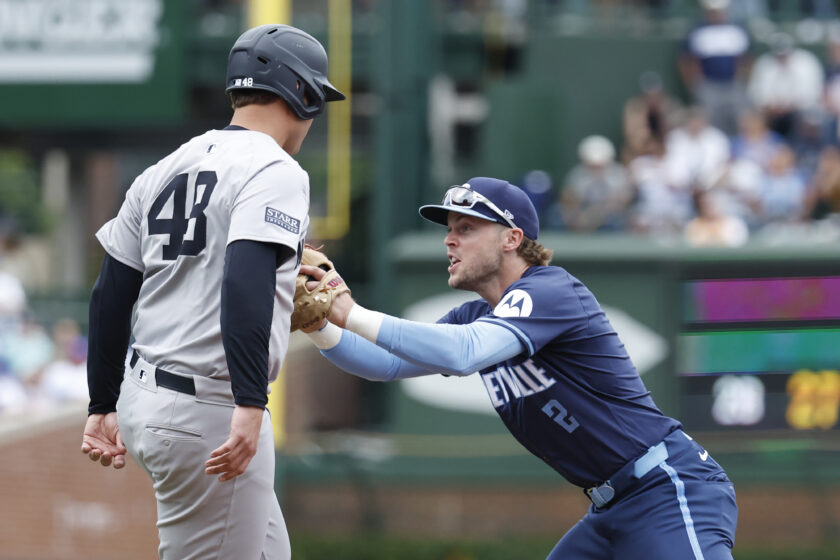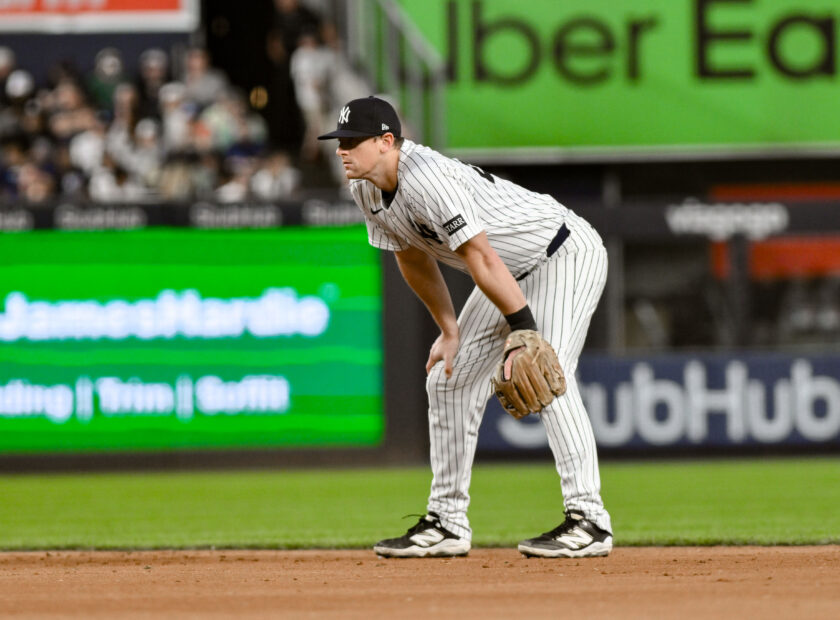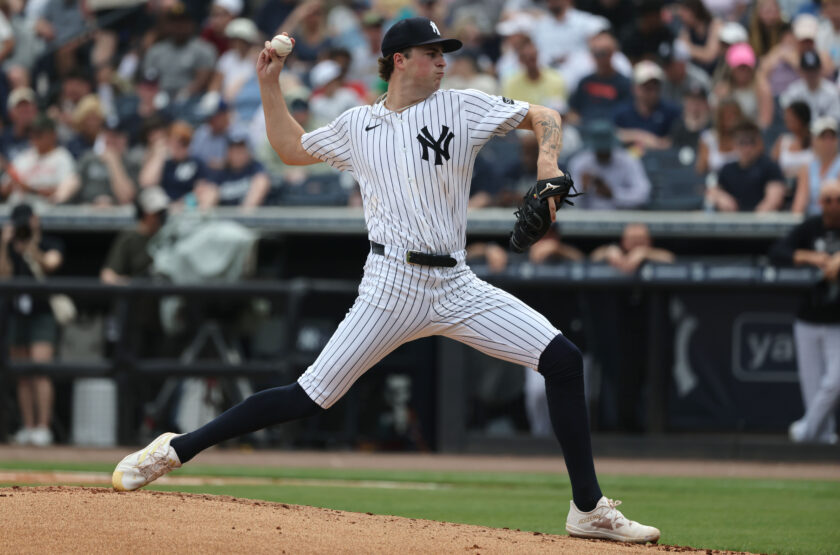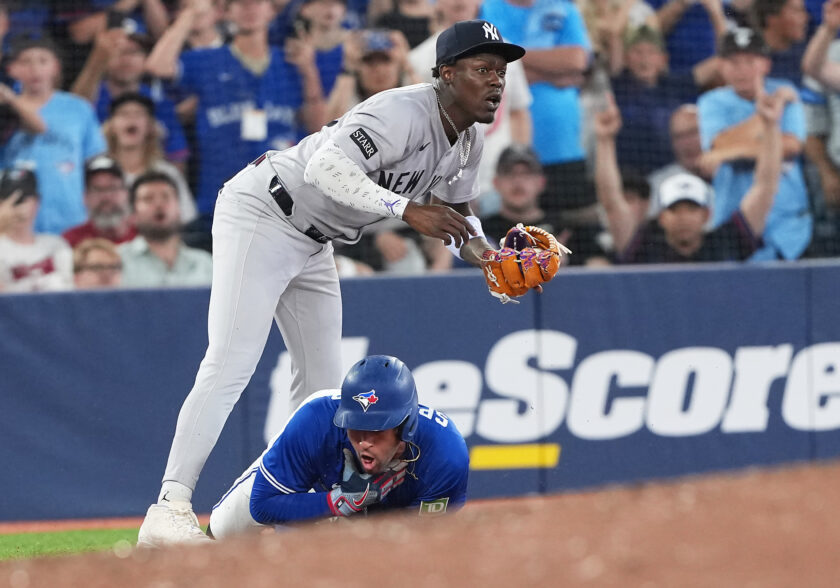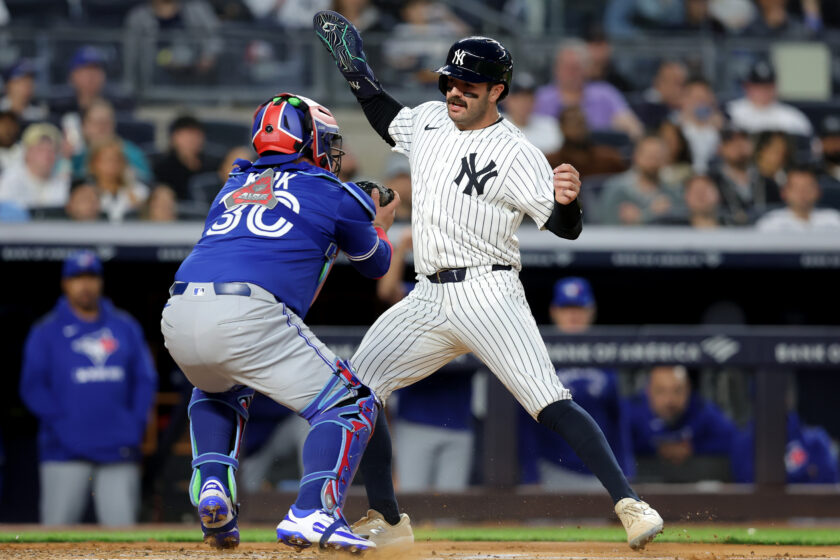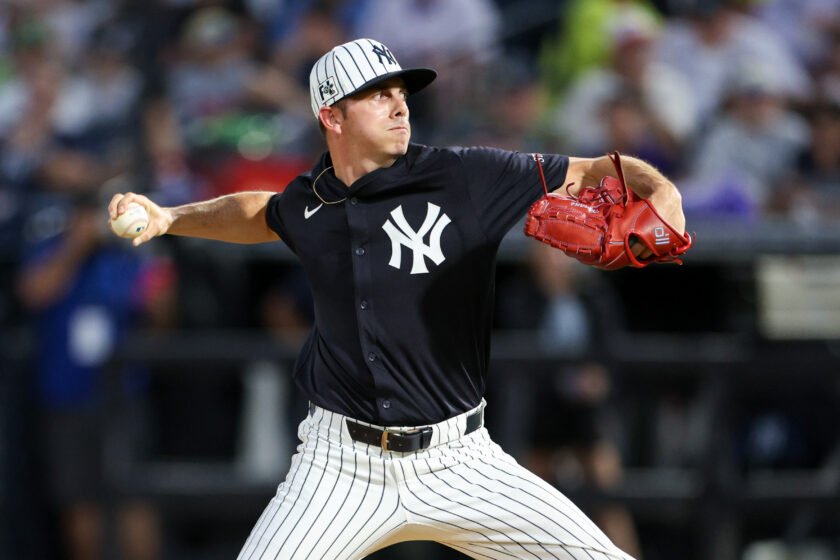Yankees legend Bernie Williams talks music, family, baseball | Q&A
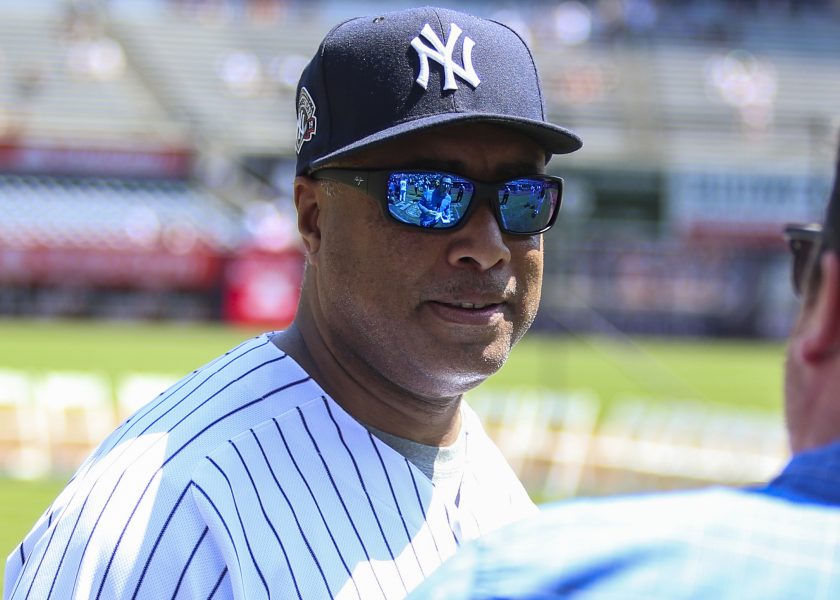
Bernie Williams had a great career as the starting center fielder for the Yankees.
Four World Series rings. The 1998 American League batting title. Five All-Star selections and 22 postseason home runs, and a sweet switch-hitting swing that fit Yankee Stadium.
Today, Williams isn’t so much about baseball. He’s more likely to strum his guitar than he is to dust off the bat for some practice swings. Williams is also active in his Tune Into Lung Health initiative, especially with Rare Disease Day acknowledged on Feb. 28. Williams’ father, Bernabe, died of the lung disease idiopathic pulmonary fibrosis in 2001.
I recently had a chance to discuss this all with Williams. Along the way we talked about family, music, and how sometimes baseball matters just a little bit less.
What is idiopathic pulmonary fibrosis? When was your father diagnosed?
Idiopathic pulmonary fibrosis is basically scarring of the lung tissue. It is a progressive, terminal disease that ended my dad’s life in 2001. A devastating disease that was just awful to see. He passed away in 2001, he was diagnosed probably about 1998, ‘99. But he was misdiagnosed for about five years before that, so we were trying to find out what was wrong with him. Nobody could come up with the right diagnosis until one doctor in Puerto Rico did. It was IPF.
At that point, he kind of knew that his days were counted and he did everything he could to fight it. But unfortunately, he passed away from it.
Five years is a long time to be misdiagnosed with something. What did they think your father was sick with initially?
That probably goes to the core of our messaging because a lot of the symptoms that are attributed to IPF and a lot of interstitial lung diseases could be confused with other respiratory illnesses like COPD and asthma. It’s a dry cough, tiredness, fatigue. Things that you would find easier to do before are a lot harder to do.
You’ll find yourself with shortness of breath, gasping for air. We’re encouraging people to get early diagnoses of these lung diseases and utilizing the resources that we have to this day to mitigate the symptoms of these diseases and that can improve quality of life. We’re encouraging people to take those steps.
So it sounds like your dad first got sick when your career was starting to take off. Did you have a hard time focusing on both his health and your baseball commitments?
No question about that. I mean, it was something that was maybe treated as, “Okay, this is just a bad cold. Bronchitis, pneumonia, whatever. It’s going to pass,” to being a situation that was a lot more serious, sadder, a lot more devastating.
To know that my dad had a condition that could not be cured and would eventually pass from it? It was sobering. It put my life into a great deal of perspective and finding out what was important. And trying to, like you said, establish myself as a Major League Baseball player. It definitely took its toll and it was very difficult.
I did a little research into your father and learned he was a merchant marine and dispatcher. Was he otherwise a healthy person?
Yeah! He was. He was the epitome of health. I mean, i think he was a visionary. Back then, the whole trend with health and wellness was not really established yet. He was the one of the first guys that I ever saw having a cocktail of vitamins and supplements. That was a staple in the house. He had ginger tea, he had given up coffee. He was into a very, very healthy lifestyle. He was the one who trained me and my brother to be track athletes and eventually baseball players.
So he was very hands on in raising us. He wasn’t a computer guy, he wasn’t a tech guy. He was more of a hard-knocks/no-nonsense/old school guy that was very strict that had a prior sort of army experience. And he treated us like soldiers, man. We went through the ringer but in hindsight? It’s probably the best thing that could have happened to us.
Speaking of your brother, Hiram, he’s a very talented cello player. You’re a very talented guitarist. Was your father also a musician?
No, he was not. He was an enthusiast. He brought a guitar from Spain home from one of his trips. And he taught himself how to play mostly Spanish guitar, and mostly the traditional music of Puerto Rico, which is a lot of Christmas songs and boleros. Kind of like all that traditional Puerto Rican and Latin American music. That’s what he liked to play. That’s what he really liked to listen to.
But he never really put that as our goal. He said, “Well, you learn an instrument and you play whatever you want to play.”
For me in those days, it was a lot about rock and modern music. But it was great to see that side of him and take the cue.
How did you fall down the music rabbit hole? What made you fall in love with jazz/salsa guitar?
I think it was ‘cause of him. Listening to him, he used to play his guitar every night after work. We were supposed to be in bed. And I could hear him in the living room just strumming, trying to come up with different melodies and tunes. I asked him one night if he could teach me how to play a little bit, and he showed me the first couple of chords. And from that moment on, a light bulb went on in my head and I became enamored with music, and the music of the guitar particularly.
I mean, since i was eight years old, I started playing and I’ve never stopped. I’m 54 now.
Well, you performed at the Carlyle and commanded the stage.
Thank you! I’ve come a long ways from there. That was a great gig, man. In baseball, there is a very concise effort to measure how good a player is, and you do that according to their numbers. You have stats for everything, and they come up with stats every year. The WAR, the this and that, so you have a good, pretty accurate measurement of how good a player is. It’s not so cut and dry when you’re talking about music because music is such a broad subject. What is good music for some people, some other people might not like it.

How good a player is is not necessarily measured by how many notes can he/she play in a minute. It’s not dealt in accuracy, it’s not dealt in any physical thing. It’s just about emotion and being able to enjoy the language, and that changes from person to person. So the way that you can measure success in music is by the places that you play at, and the people that you play with. So that Carlyle gig, man? That was the epitome of the best gig that a jazz player can get in the city!
Let’s go back to the 2001 season. I vividly remember you stepping away from the team to focus on your father’s health. At the time, you were a star player on the Yankees and married with three children. Both your teammates and family are relying on you, and you needed to go to Puerto Rico in the middle of the season to be a caregiver to your father. That must have been a lot to carry all at once.
Yeah. I mean, I would be remiss if I do not recognize the efforts that my family did. My brother and especially my mother taking care of my dad. I was the one dealing with it overseas, but they were in Puerto Rico dealing with his condition hands-on. They took him to doctor’s appointments and eventually were in the hospital with him 24/7. They faced the brunt of that care-taking task.
I mean, I was there in spirit and as much as I could in person, but it definitely required a group of people to do that properly.

Two years prior, your teammate and fellow musician, the drummer Paul O’Neill, lost his father. You were teammates for a long time. Did he put his arm around you and was he there for you over that shared loss?
Yeah. There’s no question that we had not just so many great ballplayers, but great people. I remember Scott Brosius’ father passed away around the same time, give or take a few years, and he [O’Neill] was the same way. Going through that is a pivotal moment in your life, losing one or both of your parents. It was probably around that time I started appreciating the team, appreciating what I had as a player, and appreciating my teammates that have gone through a similar circumstance and leaning into them for some support.
And they were great. A lot of those people were just amazing. And obviously the manager, Joe Torre, and people in the front office were very accommodating in letting me deal with my grief to an extent. Because obviously you have a season to worry about, and you have all of the things that are urgent. Not necessarily important or not important, but they’re urgent and they need my attention.
But you get to learn from these experiences and take in an opportunity to recognize what’s really important or what’s urgent, and it’s definitely one of those things you have to figure out in life.
Did your dad visit the Yankees clubhouse often?
Yeah, he had a pilgrimage every year with my mom in the summer ‘cause the winter was just too cold. He didn’t like to deal with that. But he would go in the stadium and he would rub elbows with the players, and they always recognized him as a jovial guy, as a guy that was always positive. Someone who always had a smile on his face.
Does one of his visits stand out in particular?
Not really! I mean, him just having a tour of the stadium with his suspenders and his jeans, looking very old school, unorthodox and just kind of taking it all in and being a proud dad. And looking at Yankee Stadium from the inside. The field, the stands, and recognizing the magnitude of the situation. “My son is the center fielder for this team!”
Just realizing what a great job they did as parents to get me to where I was.
While we’re on the Yankees, thoughts on the upcoming season?
The Yankees are going do well this year! They gotta beat the Astros. We’ll see what’s going to happen with them. I think it was a great step to sign Aaron Judge. I think they can build a team around him. They made him the captain. Could not be a better person to represent the team.
Since you brought up Aaron Judge, how would you say his leadership compares to your old teammate Derek Jeter?
Well, I haven’t been in that clubhouse, the modern clubhouse, a lot. Coming from the clubhouse dynamic that I had before, Derek was a guy that was not a rah-rah guy. Not a very vocal guy. He was a guy that led by example. And I see Aaron Judge kind of taking that approach. He was very instrumental in leading the team on a certain path. I think he did a great job not really making himself the center of attention as far as his contract negotiations.
Instead, he just let his bat and glove talk for him. Even when he was having the great year, probably one of the greatest years in the history of the regular season for any player in the history of the game, he made that do the talking and not necessarily his contract negotiations. I think he put himself in a great position. And he’ll lead this team very positively. THat’s my hope.
Follow ESNY on Twitter @elitesportsny
Josh Benjamin has been a staff writer at ESNY since 2018. He has had opinions about everything, especially the Yankees and Knicks. He co-hosts the “Bleacher Creatures” podcast and is always looking for new pieces of sports history to uncover, usually with a Yankee Tavern chicken parm sub in hand.

